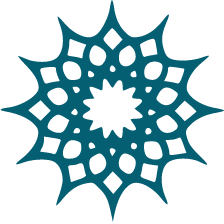المجلد 5، العدد 3 - ( 1445 )
المجلد 5 العدد 3 صفحات 51-68 |
الرجوع إلی قائمة المجلدات
Download citation:
BibTeX | RIS | EndNote | Medlars | ProCite | Reference Manager | RefWorks
Send citation to:



BibTeX | RIS | EndNote | Medlars | ProCite | Reference Manager | RefWorks
Send citation to:
heydari T. The structure of formation and semantics
in King of India
. san 2024; 5 (3) :51-68
URL: http://san.khu.ac.ir/article-1-340-ar.html
URL: http://san.khu.ac.ir/article-1-340-ar.html
حیدري طاهرة. بنیة التشکیل والدّلالة في روایة «ملك الهند»البولیسیة لجبورالدویهي. دراسات في السردانية العربية. 1445; 5 (3) :51-68
جامعة الشهيد بهشتي ، T_heydari@sbu.ac.ir
الملخّص: (1807 المشاهدة)
تختلف الروایة البولیسیة عن غیرها من الروایات بأنّها تلعب دوراً کبیراً في تحفیز القاريء فإنّ الأدب العربي بأکمله یکاد یخلو من هذا النوع، أی الروایة البولیسیة التي مجالها الجریمة والتحقیق والبحث عن الحل في النهایة. فالعثور علیها أمر صعب وإن وجدنا هذا النوع، فإنّنا نجده محاولة لاترتقي الی المستوی المطلوب في الروایة البولیسیة. لعلّ الدافع للقیام بهذه الدراسة في مجال الروایة البولیسیة بعنوان «بنیة التشکیل والدلالة في روایة «ملك الهند»البولیسیة»، هو شغفنا بخوض هذه التجربة واختیار نموذج روائي لبناني بولیسي؛ لأنها تعتبر من الروایات البولیسیة للروائي جبور الدویهي. وفي هذا الاتجاه اخترنا منهجاً نستعین به في التنظیر والتطبیق وهو المنهج الوصفي- التحليلي في التعامل مع المتن الروائي بالوصف تارة واستقراء الأحداث والحقائق تارة أخری. وفي الأخیر یمکن القول: إنّ هذه الروایة دلیل علی أن المحکی البولیسي اللبناني، مازال في بدایته ولیس هناك تراکم کبیر لمثل هذه النصوص الروائیة، وإنّ هذه الروایات التي نعثر علیها في الأدب العربي واللبناني ما هي الّا محاولة من طرف الروائي للارتقاء بهذا الشکل.
قائمة المصادر
1. البطوطي، ماهر(2005). الروایة الأم(الف لیلة ولیلة والآداب العالمیة)، ط1، بیروت: مکتبة الآداب.
2. الشمخي، رحیم هادي(2011). الروایة البولیسیة... أدب من الدرجة الثالثة عربیاً، صحیفة الثورة، دمشق:موسسة الوحدة للصحافة والطباعة والنشر.
3. بدر، عبدالمحسن(1992). تطور الروایة العربیة في مصر(1938-1870)، ط5، القاهرة:دارالمعارف.
4. بلوط حنان و زاوي فلة، (2018). المتخیل البولیسي في روایة "الجریمة البیضاء"لعمر بن شریط،مذکرة الماجستیر، جامعة البویرة،جامعة العقید أکلي محند أولحاج،کلية الآداب و اللغات،قسم اللغة العربية و آدابها.
5. بوعزة، محمد (2010). تحليل النص السردي-تقنيات ومفاهيم، الجزائر: منشورات الاختلاف.
6. تنفو، محمد، (2010). النص العجائبي(مائة لیلة ولیلة أنموذجاً)، ط1،دمشق: دار کیوان.
7. جیتي،شهریار و یوسفی فاطمه (2020)، جدلية المکان في رواية حین ترکنا الجسر لعبدالرحمن منیف، دراسات في السردانية العربية،السنة1، العدد1، صص238-258.
8. حلیفي، شعیب(2009)، التخییل ولغة التشویق مقاربة في البناء الفني للروایة البولیسیة في الأدب العربي، الهیئة المصریة العامة للکتب، مجلة الفصول، العدد76، 62-68.
9. حمزة، عارف.17/02/2020، لا روايات بوليسية في البلدان الاستبدادية.. لماذا لا يوجد أدب جريمة عربي؟، اُسترجعت في تاریخ:06/07/2024،موقعالجزیرة: https://www.aljazeera.net/culture/
10. درساوي، سهام(2019)، بنیة التشکیل والدلالة في الروایة البولیسیة العربیة،مذکرة الماجستیر، الجمهوریة الجزائریة الدیمقراطیة الشعبیة وزارة التعلیم العالي و البحث العلمي،کلیة اللغة والأدب العربي والفنون.
11. شاکرالعامری و شهریاری علی (2024). الشخصية في مسرحية أنا أملک یا شاکر لیوسف العاني، دراسات في السردانية العربية، السنة الخامسة، العدد11،صص111-91.
12. شرشار، عبدالقادر(2003). الروایة البولیسیة(بحث في النظریة والأصول التأریخیة والخصائص الفنیة وأثر ذلک في الروایة العربیة)، دمشق:اتحاد الکتاب العرب.
13. عبدالله، لیلی. (2019). ملک الهند لجبور الدویهي:حیث لا ملکاً في الروایة ولا هنداً ، اُسترجعت في تاریخ:06/07/2024،موقعالانترنت: ampArticle/43831 / omandaily.om.
14. عقيل،حنان.(2019). جبور الدويهي:لطالما حلمت برواية بوليسية ذات أفق فلسفي، اُسترجعت في تاریخ:06/07/2024، موقع العرب: Alarab.co.uk
15. علوش، سعید(1985). معجم المصطلحات الأدبیة المعاصرة، لبنان، ط1، بیروت:دارالکتب اللبنانی.
16. غانمي، عبدالرحمن (2009)، الحوت الأعمی وصیغ الحکی ومکوناته في الروایة البولیسیة، مصر: الهیئة المصریة العامة للکتاب، العدد76،صص187-205.
17. فاروق،نبیل(2018). الروایة البولیسیة(اختفاءالقراء وإهمال النقاد)، الریاض: المجلة العربیة، العدد497.
18. فتحي، إبراهیم(دونتاریخ). معجم المصطلحات الأدبیة، تونس: المؤسسة العربیة للناشرین المتحدین.
19. القاسمي، محمد یحیی(2009). الحوت الأعمی روایة بولیسیة نموذجیة، مصر:الهیئة المصریة العامة للکتاب، مجلة فصول، العدد76،صص206-217.
20. لحمیداني، حمید (2000). بنیة النص السردي من منظور النقد الادبي، ط1، المغرب: المرکز الثقافي العربي، الدارالبیضاء.
21. محجوب، مسعود (2016). المحکی البولیسي في روایة "الاختفاء الغامض"لنبیل فاروق، جامعة محمدخضیر، بسکرة، کلیة الآداب واللغات، قسم الآداب واللغة العربیة.
22. محفوظ، عبداللطیف (2009). وظیفة الوصف في الروایة، ط1، الجزائر: منشورات الاختلاف.
23. یاغي، عبدالرحمن (1986). الجهود الروائیة حرکة الترجمة في مصر في القرن العشرین، الهیئة العامة للکتاب.
24. Al-Batouti, Maher (2005). The Mother Novel (One Thousand and One Nights and World Literatures). Library of Arts.
25. Alloush, Saeed (1985). A Dictionary of Contemporary Literary Terms. Lebanon, Beirut: Lebanese Library.
26. Al-Qasimi, Muhammad Yahya (2009). "Al-Hout Al-A'mi, the narration of the popular Bolsheviks. Egypt: Al-Hayat Al-Masriya Al-Alam for the book, Magazine of Chapters, Number 76, pp. 206-217.
27. Badr, Abdel Mohsen (1992). The Development of the Arabic Novel in Egypt (1938-1870). Cairo: Dar Al Maarif, Fifth Edition.
28. Ballout, Hanan and Zawi, Fella, (2018). The Police Imaginary in the Novel The White Crime. Oulhaj University, Bouira.
29. Bouazza, Mohamed (2010). Narrative Text Analysis Techniques and Concepts. Alekhtelaf Publishing Institute.
30. Darsawy, Siham (2019). The structure of formation and semantics in the Arab police novel. People's Democratic Republic of Algeria, Ministry of Higher Education and Scientific Research, Faculty of Language, Arabic Literature and Arts.
31. Farooq, Nabil (2018). The Narrative of the Bolsheviks (Concealment of Readers and Contention of Criticism). Riyadh: Al-Majliya Al-Arabiya.
32. Fathi, Ibrahim (). Dictionary of Literary Terms. Tunisia: Arab Foundation for Unified Publishers.
33. Ghanemi, Abd al-Rahman (2009). "Al-Hut al-A'mi and Sigh al-Haqi and its secrets in the Bolshevik narrative". Al-Hayat al-Masri'a al-Amal for the book, number 76, pp. 187-205.
34. Halyfi, Shoaib, (2009). "Imagination and the language of suspense: an approach in the artistic construction of the police novel in Arabic literature". Al-Fusoul Magazine, No. 76, 62-68.
35. Lahmidani, Hamid (2000). The source of the cold text from the meaning of literary criticism. Al-Thaqafi Al-Arabi Center, Al-Maghrib: Dar Al-Bayda.
36. Mahfouz, Abdul Latif (2009). The duty of description in narration. Algeria: Publications of differences.
37. Mahjoub, Massoud (2016). The Police Narrator in the Novel "The Mysterious Disappearance". Muhammad Khudair University, Biskra.
38. Sharchar, Abdel Qader, (2003). The Police Novel (Research in Theory, Historical Origins and Artistic Characteristics and the Impact on the Arab Novel. Damascus: :union: of Arab Writers.
39. Tanfu Muhammad, (2010). The Text of Wonders (The Night of the Night and the Night of Enmudja). Dar Keywan, Damascus.
40. Yaghi, Abd al-Rahman (1986). The narrative efforts of the translation movement in Egypt in the twentieth century. General Book Organization.
41. Internet resources of the article
42. Abdullah, Lily (2019). "The King of India for the Compassionate: Where there is neither a king nor India". ampArticle/43831 / omandaily.om.
43. Aqeel, Hanan (2019). "Jaboor Al-Dawaihi: Please, Helmat, on the basis of the essence of the philosophical horizon". The time of the Arabs: Alarab.co.uk.
44. Al-Shamkhi, Rahim Hadi (2011). "The Bolshevik Narrative ... Literature of the Third Degree of Arabia". Damascus: Al-Wahdah Foundation for Printing, Printing and Publishing, Sahifa Al-Thawra.
45. Hamza, Aref (2020). "There are no Bolshevik narrations in authoritarian countries. Why is there no Arabic criminal literature?". Al-Jazeera: https://www.aljazeera.net/news/cultureandart
إرسال رسالة إلى المؤلف المسؤول
| Rights and permissions | |
 |
This work is licensed under a Creative Commons Attribution-NonCommercial 4.0 International License. |




.png)





